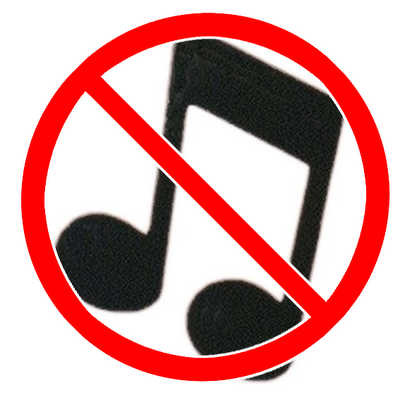The Merits of Music
Classical music has gotten a bad rap. It’s been deemed “elitist,” and the skills and efforts of its practitioners have been dismissed as inferior to those of people in other fields. This musician-bashing has become more prevalent since the economic downturn. Examples include a businessman’s claim that high schoolers can play as well as professionals and this recent Gawker article, in which the author, Hamilton Nolan, jumps on the trendy arts-hating bandwagon. He argues against subsidizing (with private dollars) a particular opera company because children with malaria or the homeless need the money more. From his tone, it is clear that Mr. Nolan intends for his readers to generalize his argument to the funding of all arts organizations. As a musician and as a student of political science, I’d like to address and refute some of Mr. Nolan’s assertions.
From his argument, on can infer that he only values activities that directly and obviously save lives. By that standard, one would have to question investment in medical research and education. For example, Irritable Bowel Syndrome is certainly uncomfortable, but it’s not lethal, so we shouldn’t fund research into it until all deadly diseases are eradicated. Education doesn’t save lives directly, so should we not invest in education until all other basic needs are met? Clearly, the answer is no. Diseases that affect quality of life create a great deal of suffering. Education provides a path for a financially stable and emotionally fulfilling future for individuals, and their increased productivity creates a better economy which benefits us.
Music can provide similar benefits. A family friend runs a local organization, called Strings for Success, which gives free music instruction to grade school children who otherwise would not be able to afford it. There has been such demand for instruction that the program has expanded exponentially in the five years since it began. The students have performed in Albany and at the University of Rochester. They were able to spend a day at a top-notch university. Their parents have become more involved with their education, and a community has formed around the program. Several students have auditioned for and been accepted to The School of the Arts, arguably one of the better local public high schools. Involvement with this program encourages team work and discipline. Music gives these children hope. As one young girl put it, it’s the first nice thing she’s had in her life. Better educational opportunities, a stronger community, and inspiration to succeed in the future. All through music education. So in a manner of speaking, yes, music can save lives.
Now, one might concede my point above, but say that opera is different. It’s expensive, appeals to a narrow demographic, and if it was really that important, most people would gladly fund it. The author would like us to apply this attitude to any large arts organization. In his view, these large arts organizations have no benefit beyond entertaining those privileged enough to afford ball gowns and hundred-dollar tickets.
Well, music has historically been based in patronage. In the past, only the very wealthy could afford to support their own chamber orchestras. With the rise of the middle class, however, demand for more affordable options rose, and the modern system of “pay per concert” came about. Just as poor Londoners attended Shakespeare’s plays, so too did less privileged Italians and Germans attend opera. Likewise, many orchestras and opera companies have less costly options for less privileged audiences. Seniors and students frequently get discounts. Often, I’ve bought tickets for less than the price of a paperback novel. Musical organizations often expand their outreach to other populations as well. They provide free concerts to school kids and their members perform in various venues throughout the community. How is “free” not affordable enough for the general public? Well, it’s certainly expensive for the orchestras, which is why they require donations to continue these functions. The Xerox International Jazz Festival is another musical event that benefits the entire community. This local summer staple includes dozens of concerts open to the public free of charge and provides a significant boost to the economy. As the name suggests, it requires corporate sponsorship. Asserting that wealthy individuals and corporations should not support the arts because they are only accessible to the wealthy is simply wrong. The wealthy’s support of the arts keeps them accessible to everyone.
Beyond its purely aesthetic value, music has other merits. In terms of economics, the music industry also creates jobs. Stage hands, set designers, musicians, conductors, marketers, administrators, educators, ushers, and countless others are employed in the musical sector. Like many other communities, my own home town, Rochester, certainly benefits greatly from its rich arts scene. The creative sector in Toronto alone is worth $9 billion annually. In addition, involvement in music can improve cognitive development, pave the way for educational opportunities and create a more cohesive community. Anyone who considers the whole picture and does a little bit of research will not write off an entire discipline based on their personal value judgments and taste. Instead they will clearly see that the arts are more than extraneous “luxury goods.”

